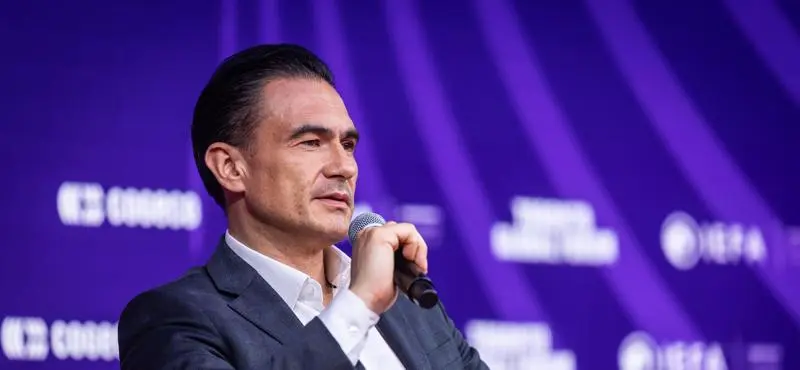As artificial intelligence (AI) reshapes how people work and what they work on, organizations are shifting from simply adopting new tools to helping employees across job roles use them effectively and responsibly.
How to navigate that change was the focus of the “Technology and Talent: Future-Proofing the Global Workforce” panel, at the 19th annual Toronto Global Forum, organized by the International Economic Forum of the Americas (IEFA). The conversation featured:
Armando Benitez, Chief Data and Analytics Officer and Head of AI at BMO Capital Markets
Nicole Foster, Director, Global AI and Canada Public Policy at Amazon Web Services (AWS)
Linda Gillespie, Senior Vice President and Chief Human Resources Officer at Cogeco
Jamie Burton, President and CEO of INNoVA
Ann Marie Vaughan, President and CEO of Humber College (moderator)
The session explored how educators and employers can work together to build the AI skills that workforces need to work smarter, improve productivity and strengthen the country’s competitiveness in the global economy.
Productivity with purpose
From the outset, the panel agreed that building trust in both people and technology is key to ensuring AI innovation enhances human potential.
“AI is transforming every single role within our organization,” said BMO’s Armando Benitez. “With generative AI coming into the picture, we’ve seen how it changes the way we work. People are writing better emails, getting to answers faster, and writing better code. Now the question is, how can we take everything we’ve learned and pass it on to the rest of the organization?”
At BMO, he explained that the focus has been on using AI to work smarter, identify risks earlier, and personalize client experiences while streamlining internal operations. The priority for Benitez is to make sure AI is being introduced in a thoughtful manner, ensuring any AI use is properly tested and reviewed both from a technical and ethical perspective before being put into production.
“The speed and efficiency gained through AI must be balanced with proper context, fairness and empathy,” he said. “We focus on productivity with purpose. Fairness, transparency, and accountability are part of the journey from the beginning.”
Humber College’s Vaughan echoed that sentiment. “As educators, we believe AI should be embraced, not feared,” she said. “The future of work will depend on critical thinking, problem solving, collaboration and empathy – skills that define both employability and leadership.”
Bridging the skills gap
The speakers each called out education as the link between innovation and long-term productivity. Without continuous learning, they said, technology risks outpacing the people and organizations meant to benefit from it.
AWS is demonstrating this through new partnerships with post-secondary institutions. For example, Humber and AWS launched a cloud computing graduate certificate with the goal of future-proofing global talent pipelines. “Micro-credentials are a very fast and accessible way to start building up skills,” said AWS’ Foster. “They’re flexible and adaptable to what the labor market needs.”
For one of these partnerships, AWS developed a cloud skills program with BMO called “Activate” that targeted Aboriginal learners. While AWS offers several free virtual programs to help individuals gain skills, Activate was meant for those who learn better in a classroom setting. She noted that about 85% of the students in this 12-week intensive program ended up staying on at the bank, suggesting the program served as a talent pipeline for recruitment.
BMO, meanwhile, has initiated its own internal Learning Academy to emphasize AI, data literacy and digital fluency, said Benitez. These partnerships with AWS, as well as with educational and research institutions, are how BMO future-proofs its curriculum, he explained.
Preparing for what comes next
For INNoVA’s Burton, the shift to a successful AI-enabled economy must be built on inclusion and access – and that should be built into the implementation process from the beginning.
“Upskilling and reskilling are not just about positioning someone in a new context or opportunity but ensuring that each individual has access to the tools and systems that support that opportunity,” she said. “By building a culture that recognizes the diversity of our person, – our ethnicity, who we are, the things that matter to us, our cultural beliefs – as much as the skill-set that we think is required for the job, we begin to understand how to work together in teams, and that’s what enhances productivity.”
While organizations are still learning how to work with AI, Benitez stressed that it must be embedded across every level, not as an optional tool but as a core capability that drives transformation.
“We are investing heavily in AI, and we want to make sure that everyone is an expert user of this technology,” he said.
The panel agreed that the future of work hinges on integrating AI in ways that enhance human potential while maintaining ethical oversight. They all underscored the importance of building trust in AI, upskilling employees, and fostering inclusive access to technology.
